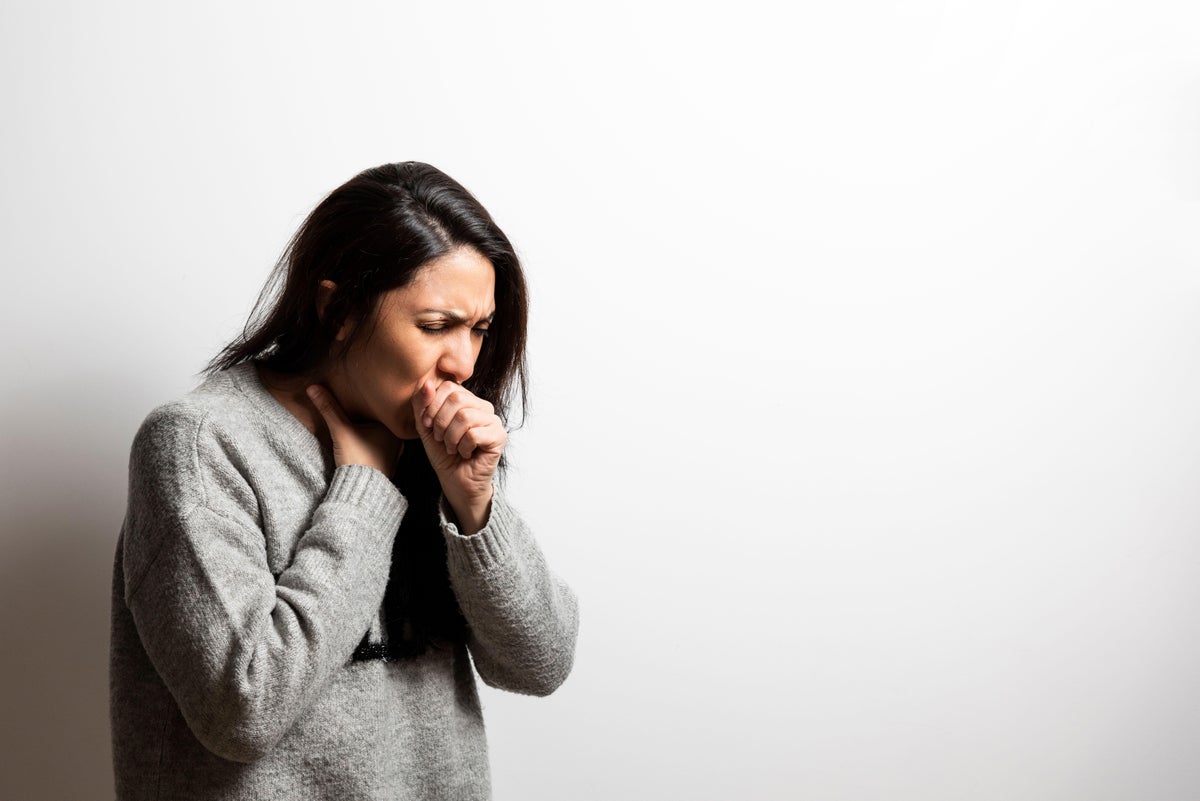
Is that lingering cough just a cold or something more?
With winter illnesses sharing similar symptoms, it can be difficult to distinguish a common cold from bronchitis.
Knowing the difference is vital, as bronchitis, an inflammation of the bronchial tubes, can be either acute or chronic, requiring different approaches to treatment.
To help you decipher your symptoms, we consulted experts who identified key warning signs that could indicate bronchitis and when to seek medical attention.
What is bronchitis?
“Bronchitis is a respiratory condition characterised by inflammation of the airways in the lungs,” says Dr Ashwin Sharma of online pharmacy MedExpress.
It can present in two distinct forms: acute and chronic.
“Acute bronchitis is a common respiratory infection that affects both children and adults and usually gets better on its own,” explains Erika Radford, head of health advice at Asthma + Lung UK. “Whereas chronic bronchitis is more common in people over the age of 35 and is usually caused by long-term lung damage, the main risk factors being smoking or exposure to air pollution.”
What causes it?
“Acute bronchitis is most commonly caused by inflammation of the airways due to infections such as the common cold, influenza, or Covid-19,” says Sharma.
On the other hand, chronic bronchitis has a variety of contributing factors.
“These include age and family history,” notes Sharma. “However, the leading cause is smoking or exposure to secondhand smoke.”
What are the symptoms?

A hacking cough is the primary symptom of bronchitis, according to the NHS.
“A distinguishing feature of a bronchitis-related cough, as opposed to a typical cough, is the presence of mucus production,” highlights Sharma. “This mucus may vary in colour, appearing clear, white, yellow, or green.”
Other symptoms of bronchitis include chest pain, breathlessness, a sore throat, a runny nose, and a high temperature, according to Asthma + Lung UK.
“Bronchitis can be short-term (acute) and symptoms usually last around three weeks,” says Radford. “But some people can have long-term (chronic) inflammation of the airways. This is known as chronic obstructive pulmonary disease (COPD).”
The NHS advises anyone who is experiencing severe difficulty breathing (such as struggling to speak without pausing, gasping, or choking), intense chest pain in the middle of the chest that doesn’t subside, or pain that spreads to the arms, back, neck, or jaw to call 999 or visit A&E.
Other warning signs that require immediate medical attention include feeling unusually drowsy or noticing your lips or skin turning pale, blue or grey.
The NHS also states that the most common complication of bronchitis is pneumonia, which happens when the infection spreads further into the lungs, causing air sacs inside the lungs to fill up with fluid.
Those listed as at higher risk of developing this include the elderly, smokers, those with other health conditions (like heart, liver, or kidney disease), and people with weakened immune systems.
Who is most at risk?
“Individuals at higher risk for developing bronchitis include young children, the elderly, those with compromised immune systems, individuals with pre-existing lung conditions, and smokers,” says Sharma.
Can it be treated?
“Acute bronchitis typically resolves on its own without needing specific treatment,” says Sharma. “However, supportive measures such as drinking warm tea with honey, using throat lozenges, or taking over-the-counter medications to alleviate cough symptoms and loosen mucus can be helpful.”
The NHS website recommends contacting your GP if symptoms last longer than three weeks, as you may need antibiotics if your bronchitis is caused by a bacterial infection.
“Managing chronic bronchitis focuses on symptom control and improving respiratory function,” says Sharma. “Treatment options may include quitting smoking, medications to help clear the airways, oxygen therapy, and other interventions tailored to each individual to enhance breathing and overall quality of life.”
If you would like to receive tailored advice about how to look after your lung condition over winter, please visit asthmaandlung.org.uk







